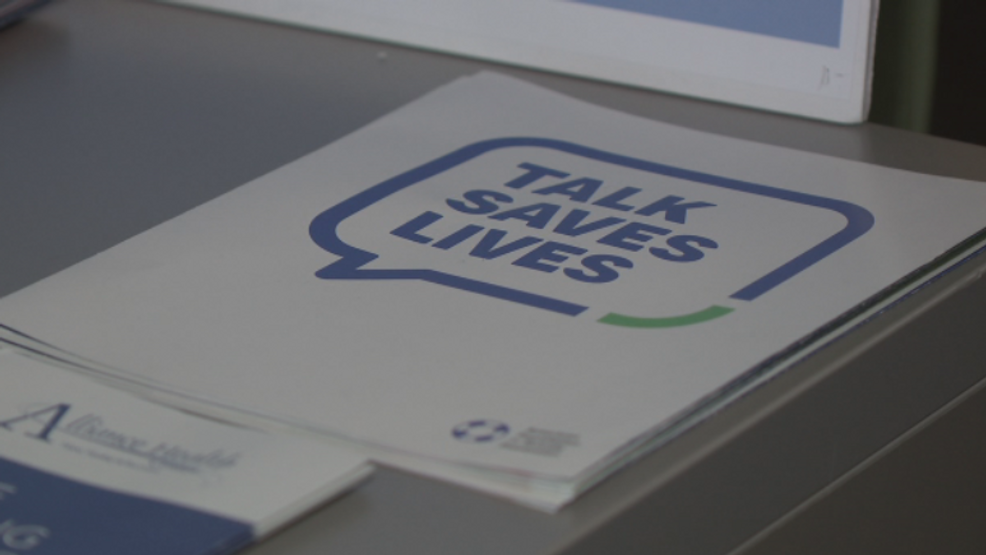
The Alabama Department of Mental Health is gearing up for another legislative session to ask for additional funding to complete the state’s crisis system of care. That system includes crisis care centers, mobile crisis teams, and 988 Suicide and Crisis Lifeline call centers.
On Tuesday, ADMH opened a fifth crisis care center in Tuscaloosa. A sixth center is expected to open in Dothan next spring. The department estimated 11 crisis centers, more mobile crisis teams to serve rural communities, and an expansion of 988 call center capacity is needed to serve all 67 counties in the state.
Although additional funding was allocated during the last legislative session, funding is far from where it should be. Department of Mental Health Commissioner Kim Boswell explained they have two areas of focus.
SEE ALSO: BSC suing State Treasurer after application for Distressed Institutions loan denied
The first area is to complete the network of crisis care services.
“Right now those services are available in 19 counties. 988 is statewide although we don’t have the capacity we need at 988. There are still calls rolling to the national number,” said Boswell.
To have access to crisis care in all 67 counties and expand 988 capacity, it is estimated to cost around $69 million.
Improving workforce wages is the second area of focus. Boswell believed the solution could be getting additional money from the state to fully cover $42 million of uncompensated care.
“When we provide those services, our community mental health centers don’t get reimbursed for it. Often the way they manage it is by running long waiting lists and paying low wages,” said Boswell. “Over the last two years, and in our budget presentation this year, we’ve asked for funding to cover the uncompensated care which then gets us to paying higher wages and addressing workforce issues.”
At the 988 call center in Birmingham, Director Emily Roebuck has started to see what additional funding approved during the last legislative session can do. The center is hiring for three new positions to help answer 1,500 to 1,800 calls each month.
The new employees are expected to improve the center’s answer rate.
“For September, most recently it was 57%. Right now we are the only 24/7 crisis center in Alabama. I think we are getting the volume of the calls and we don’t have all the staff onboarded that we need yet,” said Roebuck.
Statewide the answer rate is 65%. The goal is to get to the national rate which is 90%.
“We’d love to have as many staff as we could possibly have. To get to the 90% answer rate, we’ll need a lot more than we have,” said Roebuck.
The new staff will be used to increase people taking calls during their busiest hours which are late afternoon to 11:30 p.m. and weekends.
There are some funding options on the table.
Boswell said there has been discussion about reintroducing the 988 surcharge bill. The legislation which would’ve put a $.98 charge on monthly phone bills was introduced in the previous session but did not make it through the legislature. The revenue from the surcharge was expected to cover the $69 million needed for the crisis care network.
READ MORE: Lawmakers discuss 988 lifeline surcharge to fund Alabama crisis care services
The 988 surcharge was likened to the charge already on phone bills for 911.
Boswell said the charge may be lowered to $.50 if the bill is introduced in the next legislative session. It would fund 988 centers and mobile crisis teams. She said those two elements of the crisis care network are most similar to 911 and EMS.
A second option relies on the passage of a gaming bill. If passed, Boswell said some revenue from gaming could be directed to the state’s crisis care services.
Alabama State Representative, Rex Reynolds, leads an ad hoc committee on mental health. He also sponsored the 988 bill in the last legislative session.
Although the 988 bill didn’t pass, he said the state increased funding for mental health by more than $40 million for the 2023-2024 budget. He said there needs to be a more permanent and stable funding source moving forward.
“We are already drastically increasing the operating cost and mainly did it for the crisis centers. About $36 million alone is the line item that we approved for the crisis centers. To make the picture whole you’ve got to look at what we are spending overall. The $211 million is a huge number,” said Reynolds.
He added they now have to look at long-term funding options that aren’t as reliant on money from the general fund which can fluctuate based on the economy. He explained the last legislative session was a tough session to push through the 988 surcharge bill as lawmakers were cutting the grocery tax and cutting taxes on business licenses.
Reynolds said he has introduced the 988 bill with a surcharge of $.50 to the Joint Legislative Committee on Mental Health.
“We are moving toward the 24′ session with that bill in mind,” said Reynolds. “I think we should keep our minds open to any source of revenue.”
As gaming continues to be a topic of conversation, he believed mental health resources receiving funding from that potential revenue source should also be a part of the conversation.
“We have to look at it moving from one budget cycle to another and see what we can identify. We just opened this week our 5th crisis center in Tuscaloosa. We will open a sixth crisis center in Dothan. I’ve said this publically before, we are just about going to have to stop there until we do figure out what that long-term revenue source is. I certainly don’t want to, in more dire times with the budget, have to close doors. Every crisis center we have opened they have immediately been full and we’ve had a waiting list for them.”
